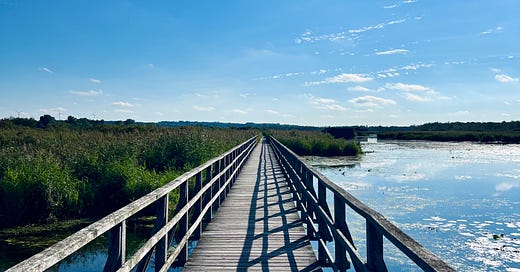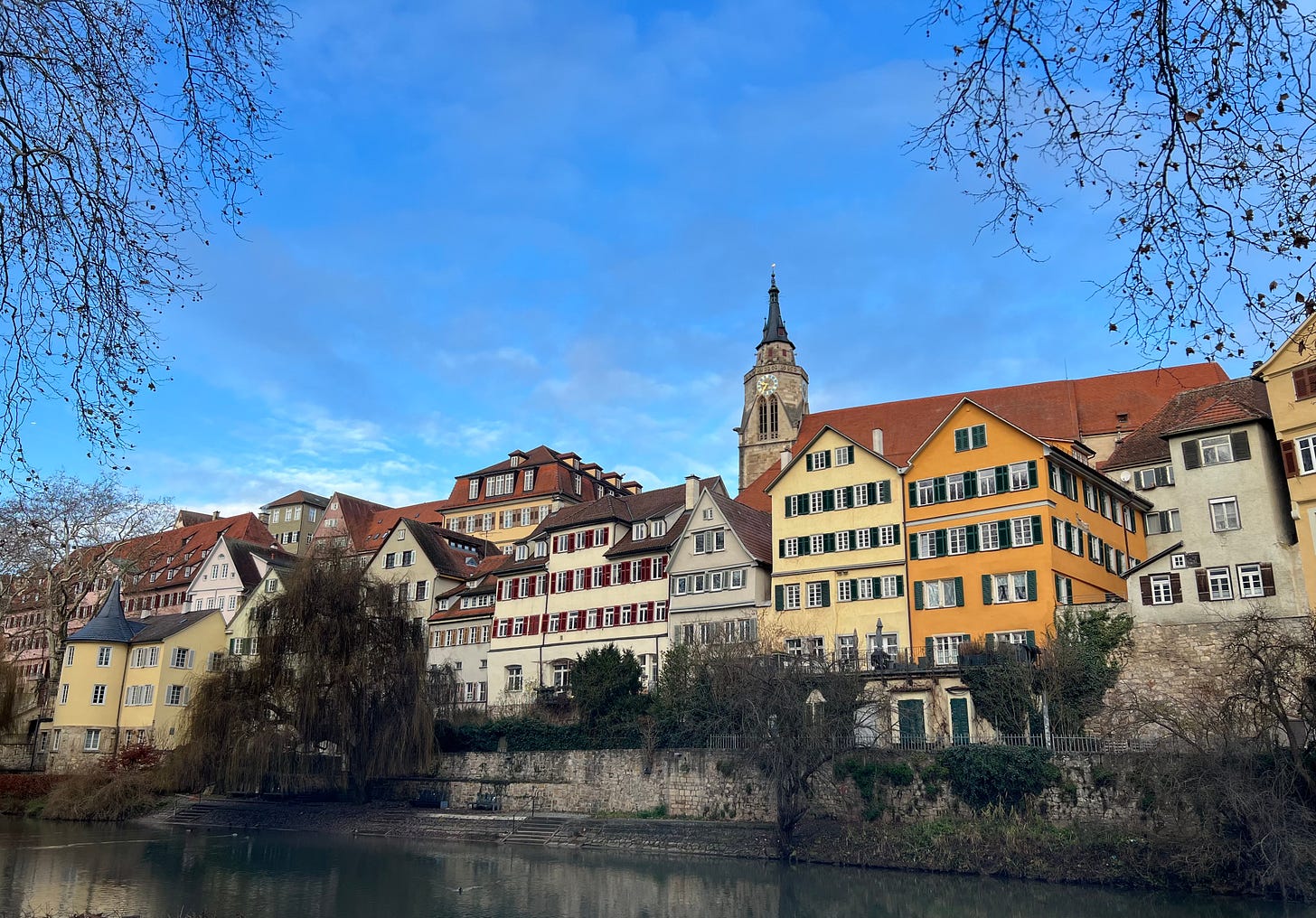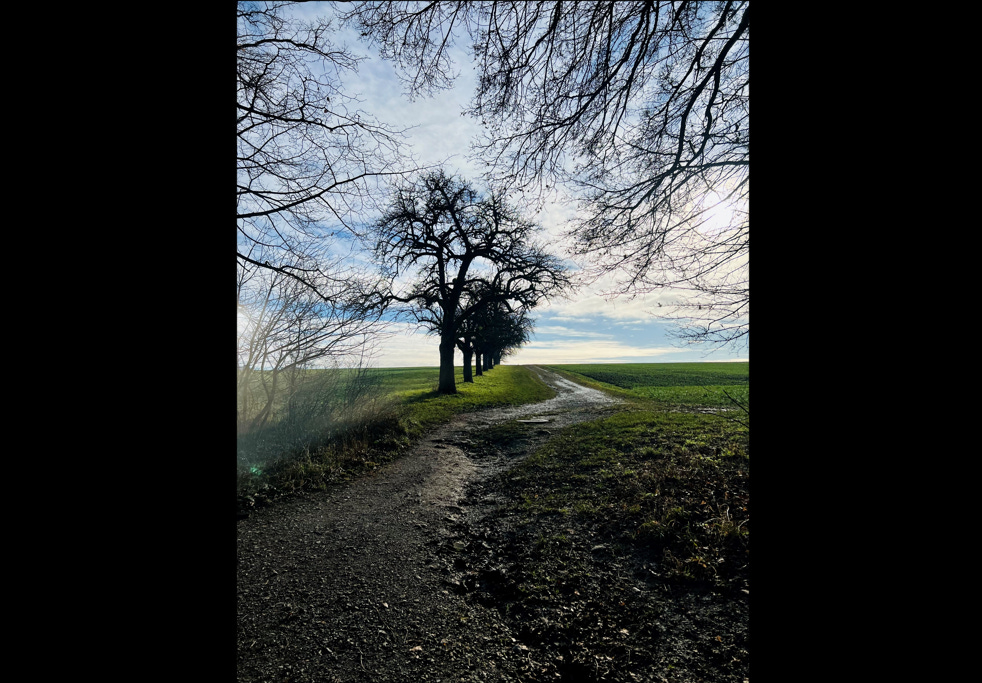The Struggle for Home
"You need to hate the world enough to change it, but love it enough to consider it worth changing." - G.K. Chesterton
Hello friends,
My thoughts and prayers go out to everyone affected by the Los Angeles fires. It has been heartbreaking to see so many homes lost overnight.
While I watched footage of the devastation, my thoughts returned to a piece that had been sitting in my drafts for some time. I’ve long struggled with that word, home, and what it means. Do we get to choose where home is?
I grew up in Germany, but for a decade or so, New York clearly was home. It was not just the marriage, the job, and the apartment with my stuff (my books, really). When I stepped off the plane, I felt lighter, as if I had been unshackled of a great weight. I wanted to touch the walls and floors, make sure it was real. I would skip through the airport toward that vast and strange country. America felt like the future — like my future. I didn’t wonder what I felt unburdened of.
Visits to Germany felt like walking into a minefield of emotional triggers, like long exercises in shadow work. At first, my heart would jump. I would cherish the sight of lush hills and forests. My mouth would water at the smell of fresh bread. But with every hour I would breathe in more of its psychosphere, its Weltschmerz. My Heimat seemed stuck: anxious about the future, haunted by a poisoned past, condemned to a gloomy present.
I experienced a kind of claustrophobia: the state was less powerful but more encroaching, the people more distant but also more concerned with whether I followed the rules. The German character with its pedantry, obedience, and self-righteousness felt suffocating.1
I would wait for examples of this unbearable German-ness. Like that time Frankfurt’s airport security found drops of water in my Hydro Flask and called armed reinforcements. Or when neighbors noticed a plastic yogurt container in the wrong trash bag. More recently, I read about politicians suing their citizens over memes. How petty and insecure do you have to be?
For some time, this was my life. I did not understand America (it really is a strange place), but I could accept it. Germany I understood but could not accept. But things have become more complicated.
Last summer, I had to escape New York whose relentless energy was wearing me down. I was walking circles in my underworld and hoped for clarity and direction. But we only get to choose where we go, not what matters once we get there.
Ever since becoming spiritual, I have been paying more attention to the energy of a place, weird as that might sound. I regularly visit my grandparents’ grave when I am in the country. When I visit a new town, I try to spend a few minutes of meditation and prayer in the local church. I try to check in, for lack of a better word.
That summer I was most touched by a place that seemed utterly unremarkable: a small lake near my mother’s birthplace. My mother and I followed a wooden footbridge to the middle of the lake. It was a serenely sunny and quiet day, nothing but a breeze, birds in the distance, occasionally a fish popping to the surface. What happened was strange: not only did I feel at peace, but the world’s texture seemed to change at the edge of my eyes, in subtle ways, the more I surrendered to it. I could no longer tell if I was reacting to the place or it to me.
And I noticed that a part of me resisted. It’s so boring here, my inner American objected. We’re far away from where things happen, from the things that matter. But to me, the perfection of that afternoon seemed to contain everything that mattered.
At the end of my trip, I took a two-day detour to the town of Eschweiler near Aachen. I had experienced a strange synchronicity in New York when I bumped into the grave of an American soldier who may have shared the Eschweiler battlefield with my grandfather. I visited two military cemeteries. I sat and prayed and watched the rows of silent graves. Nothing happened.
What I remember instead are the difficult conversations with the woman running the bed and breakfast. This was shortly after a jihadist knife attack in not-too-distant Solingen. What do you say to someone who is angry, afraid, and feels like a stranger in the town they grew up in? I didn’t say much, I listened. I had a plane to catch the next day. This time, it felt like I was running away.
New York teaches its residents to have their guard up. It’s too dense and noisy and filled with too many unpredictable people. You learn to mind your own business, to put on armor against the chaotic energy. Germany was different. Germany allowed no such numbness and indifference. It slipped right underneath my skin.
I returned in December for grandma’s funeral and stuck around for Christmas. Two weeks total, a lot of family time in my book. We broke up the schedule for some alone time just so, you know, we wouldn’t accidentally stab each other or have another screaming match. On the afternoon of the 24th, I went for a long walk. I needed to be alone with the fading light.
I passed the old houses, paced along the river, out of town, toward the distant sun that clawed its way through the clouds. My hands greeted moss-covered trees. I felt the soil and the wet grass. Somehow just being there, among rocks and water, somehow that was enough. Between heaven and earth, there was a sliver of silence that held me, nourished me. It was an ancient, perfect quiet, like a silence between wars.
For a moment, I resisted. I did not want to like it that much. I walked with my fist raised toward the sky, shaking it at God like a crazy person. What do you want from me? But there was no denying that I truly felt of this place, one with it. There was a love in the wind that no words could erase.
I suppose that with enough money, you can call pretty much any place home. Cities like New York make it easy because so many people are in flux, always arriving or departing, rarely settled. And it’s so large and diverse that even the oddballs can find their alien tribe. Maybe L.A. is like that too, I’ve only seen it as a tourist.
But New York’s problems, and those of the US as a whole, seemed so great and chronic, that I could keep them at a distance. I could shrug at the madness. Sorry, above my paygrade. Hope someone will fix it.
By comparison, what ailed the Germans felt intimate and inescapable. Somehow, those impossibly rigid people still felt like family. When I despair at their nature, it is because I find it in myself. My heart beats faster on the soil of my birth and my blood runs with its waters. I don’t know yet what to do with that, I just pay attention when the wind whispers.
I’ve never lost my home to catastrophe and I can’t imagine what it must feel like. But I am learning that home is worth fighting for. Also, that home contains a polarity. I used to think of it as a castle, a place of protection and safety. But maybe home is not just a place of comfort but of challenge. What if home is not only what we need but where we feel needed?
Perhaps home is where even the biggest problems feel intimate, where you can’t keep your distance.
I think home is where we sense beauty underneath the ugliness, perfection underneath the flaws. It is what we want to tear down and rebuild because it tears us to pieces.
No fortune can create a bond between your heart and the soil. Money can’t lift your spirit into the clouds or merge you into the mist. If life is suffering, perhaps home is where that suffering feels worth it. Home may be our place of love, but nobody said love would be easy. Maybe home is just where the heart burns.
— Frederik
👉If you would like to receive my work regularly:
👉 If you enjoy reading this post, feel free to share it with friends or click the ❤️ button so more people can discover it on Substack 🙏
In his book The Germans, historian and Germanophile Gordon Craig recounted his first trip to Germany in the mid-1930s. Toward the end of the trip, he met the American consul:
“I said … I found it strange that a people that had been famous for its irrepressible individualism in religion and philosophy should have made obedience to political authority so supreme a virtue.
"Oh my yes," Hathaway replied. "I live in a little village south of Munich, and the people there are hard-working and friendly and not interested in politics in general, and they and I like and respect each other. But if someone in uniform came to them and said, 'March!,' they would march. And if he said, 'Go and cut off Hathaway's head! He is a bad man!, they would reply, 'We didn't know that!' But they would cut my head off all the same.”







I have the same feelings when I visit nature. So beariful and majestic, but inside I don't know how I should feel. I live in a city with 1 million population (not even close to NYC levels) and still find myself checking constantly emails and phone. When in nature I know I don't have to check my phone, but I feel a void for not doing so. From listening podcasts in 2x, to feeling life passes by 0.5x in nature
Nice reflection.
By the time I turned 18, I’d already called five countries home (Germany included! 🙂). Your piece brings back all the pros and cons of each one, plus the tough reality that I never truly felt “at home” in any of them.